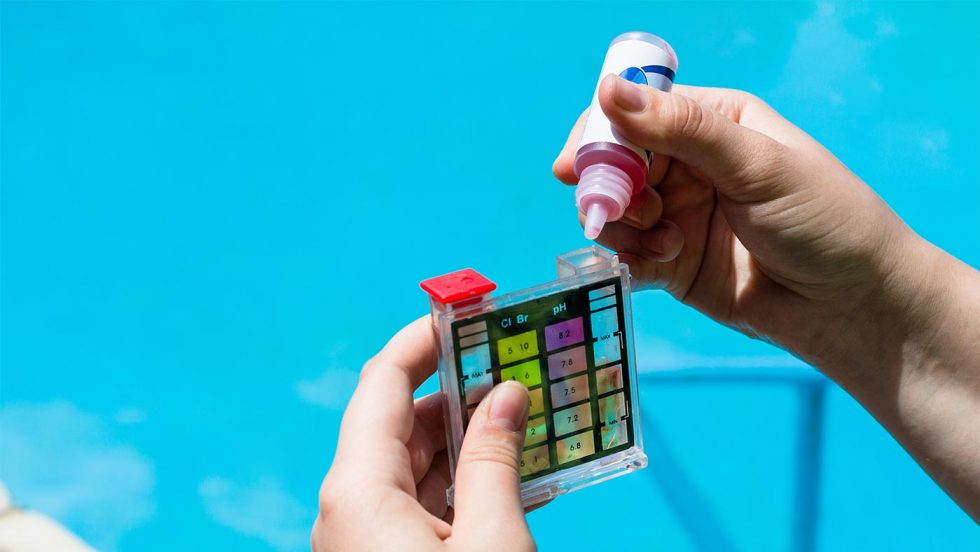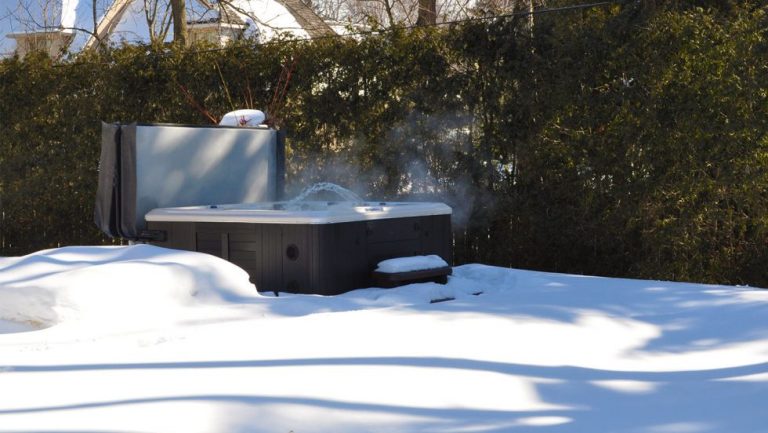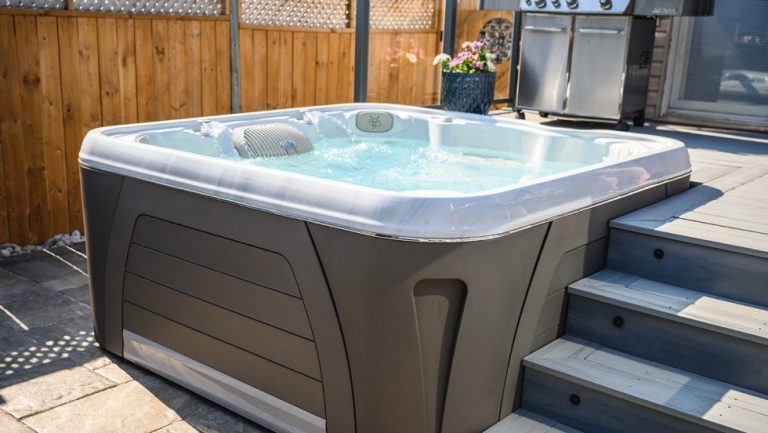One of the most important things that any hot tub or pool owner can do it to regularly test their water. This is because regular water testing allows you properly monitor your pool or hot tub’s “water balance”.
Water balance is the term used to describe the relationship between different chemical measurements (such as pH, alkalinity and calcium hardness) in your pool or hot tub water. The goal of water balance is to make sure that your water is neither corrosive or scale forming; known as the water’s “saturation point”.
Water that is below the saturation point is corrosive. It tries to saturate itself by dissolving everything it comes in contact with.
Water that is above the saturation point is scale forming. It can no longer keep hold all of the minerals that are dissolved in it. The excess minerals then group together and form scale on any surfaces within the water.
WHY SHOULD YOU GET YOUR WATER TESTED?
The more that you test the water in your pool or hot tub, the more balanced you will be able to keep your water. There are 4 major advantages to having well balanced water. These are:
- A LONGER LIFESPAN
Hot tubs and pools are a large investment. You want to protect that investment and make sure that it lasts for as long as possible. Maintaining proper water balance is by far the best way to ensure a long life for your hot tub or pool.
Corrosive water will rust any metal components within it, notably pumps and heaters. Over time it can also cause plastics to become brittle, will degrade rubber o-rings and can even cause pits to form in the finish of concrete pools!
Scale forming water will deposit scale on any exposed surfaces. This can be especially harmful if your pool or hot tub has a heater or salt system. Even scale the thickness of a single piece of paper can reduce the efficiency of your heater or salt system by 50%! This causes them to work harder than they need to, greatly reducing their lifespan in the process.
- YOUR OWN COMFORT
Ever come out of a pool with red, irritated eyes? While most people believe that this is caused by sanitizers like chlorine and bromine, it is actually caused by poor water balance.
The human eye has a pH of around 7.5. The farther away the pH of your water drifts from 7.5, the more irritating it is for your eyes. Maintaining your pool at the recommended pH level of 7.4-7.6 is therefore the absolute best way to reduce eye irritation.
- PEACE OF MIND
Simply put, water without enough sanitizer isn’t safe to use. Regular water testing helps prevent you or your family from developing rashes or other waterborne infections.
- SAVING YOU MONEY IN THE LONG TERM
Lastly, regular water testing saves you money! While it can sometimes seem like a waste of money to add balancing chemicals to your pool or hot tub, these costs are greatly outweighed by the costs associated with unbalanced water. What are these costs?
- Reduced Equipment Life. The cost of prematurely replacing equipment, especially larger items such as pumps, heaters and salt systems, greatly outweighs the cost of maintaining a proper water balance.
Treating A Problem. Just like cars, the cost of properly maintaining your hot tub or pool water is a fraction of the cost of fixing a problem like green water. While keeping your water balanced over the entire summer might cost you a few hundred dollars, fixing a problem like green water can cost the same in only a few days.
WHY SHOULD I GET MY WATER PROFESSIONALLY TESTED?
Why get your water professionally tested when you can just do it at home? Professional water tests are much more accurate than home tests, and are carried out by a professional that can help walk you through the steps needed to properly balance your water. This greatly reduces your margin of error and will stop you from adding unnecessary chemicals to your water.
Home testing kits will typically only test for sanitizer, pH and alkalinity. Professional water testing systems, on the other hand, also test for things like:
- Stabilizer. Stabilizer is added to pools to help prevent the chlorine in them from being destroyed by the Sun’s UV radiation.
- Calcium Hardness. Calcium plays a big role in the saturation of water. Having the right amount of calcium in the water can help increase the saturation of the water and lessen the chances of it turning corrosive.
- Metals. Metals can be introduced from outside sources like well water, or from metal elements within the water (commonly heaters, pumps and pool ladders) corroding due to acidic water. If left untreated, metals can cause the water to change colour and stains to appear on pool surfaces.
- Phosphates. Phosphates are essentially algae food. The more phosphates that are in the water, the easier it is for algae to grow, sometimes even when there is sanitizer present in the water.
The extra tests and improved accuracy of professional water testing gives you a much more complete picture of the overall health of your pool or hot tub water. This allows you to fix potential problems before they arise and makes it much easier to keep your water in balance.
MY WATER LOOKS GOOD, WHY SHOULD I GET IT TESTED?
Most people look at crystal clear water and assume that their water balance must be perfect. Clear water, however, doesn’t always mean good water. In fact, water that looks clear can sometimes have serious problems.
While clear water is usually a good thing, it can also be an indication that your water is acidic. Remember that acidic water is below the saturation point. It can therefore hold a lot of minerals in solution without the water turning cloudy. While this keeps your pool, hot tub or swim spa looking good, it also greatly reduces the lifespan of the equipment.
HOW OFTEN SHOULD I TEST MY WATER?
We strongly recommend testing your pool or hot tub water at home at least 2-3 times per week. When testing your water at home, pay close attention to your pH and chlorine/bromine levels, adjusting them as necessary.
If everything looks good on your home tests, we recommend getting your hot tub or pool water professionally tested around once per month. If you encounter problems such as consistently low pH, cloudy water or green water, get your water professionally tested as soon as possible. These problems will only get worse with time and are much easier to fix if dealt with quickly.
HOME WATER TESTING TIPS
- Test your water while it is circulating. There can be differences in the balance of water that isn’t moving. Circulating the water evens out these differences and gives you a better idea of the overall balance of the water.
- Take your sample from water that is 12”-18” below the surface. Water at the surface interacts with air, which changes its balance and gives you inaccurate readings.
- Check the expiry date of your reagents. Reagents generally have a shelf life of around 1 year. The older a reagent gets, the less it will change colour. Expired reagents will therefore always display low level readings.
- Don’t test water near the return jet of a pool. The chlorine level coming out of a pool return jet is generally a lot higher than in the rest of the pool water.




